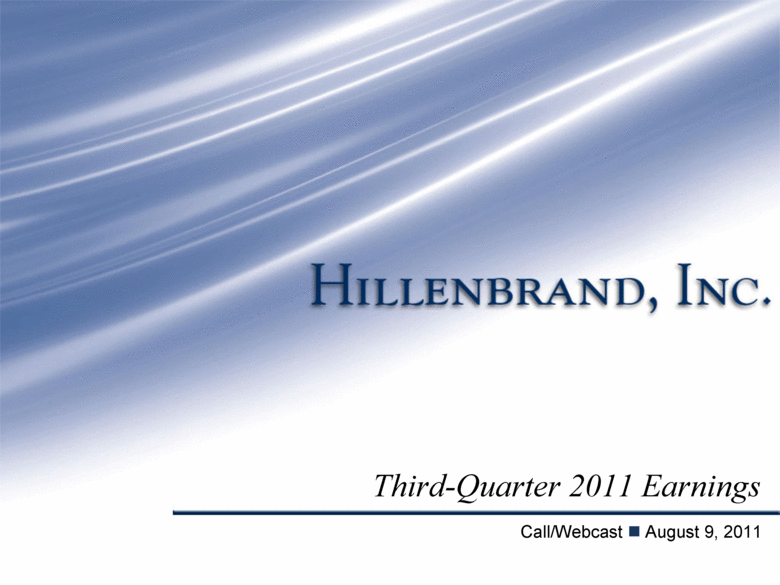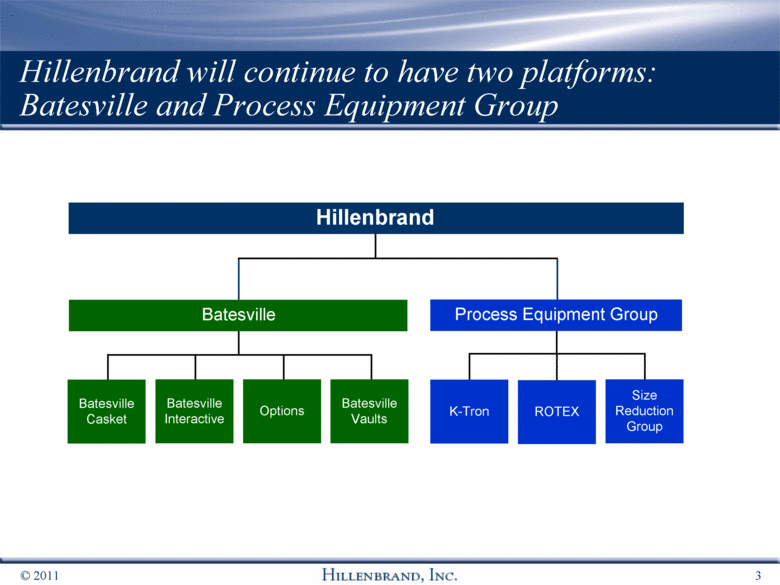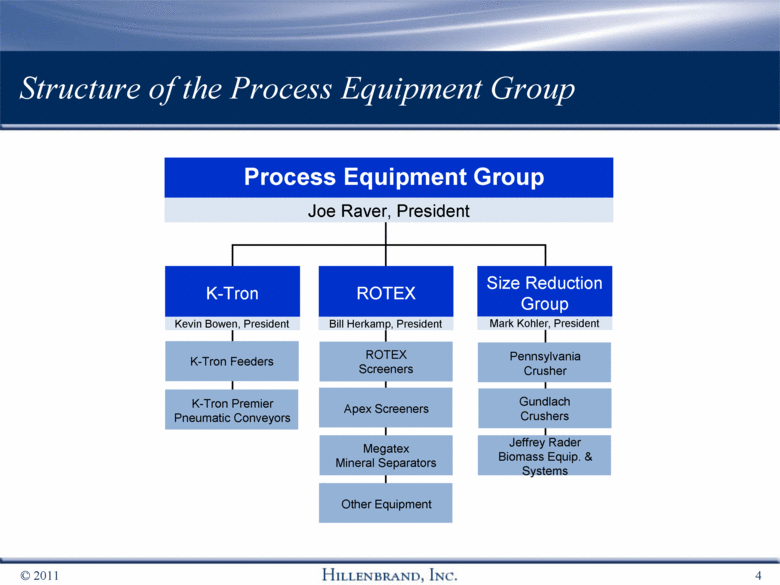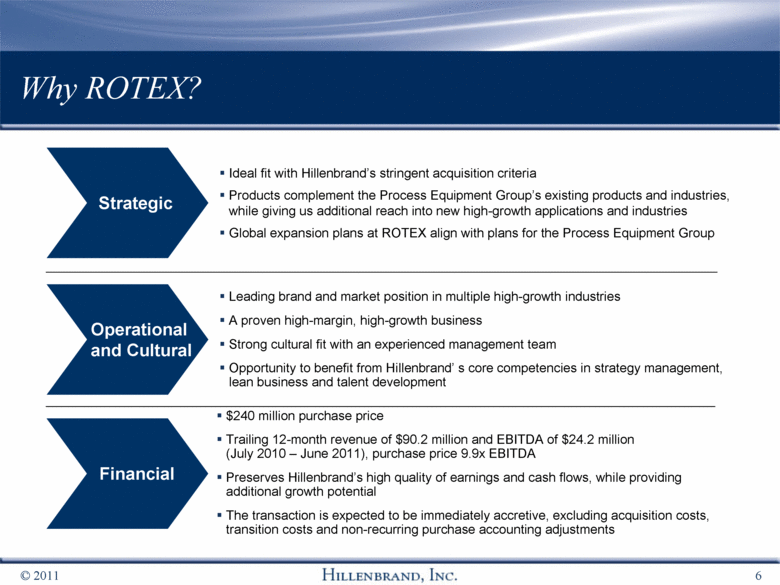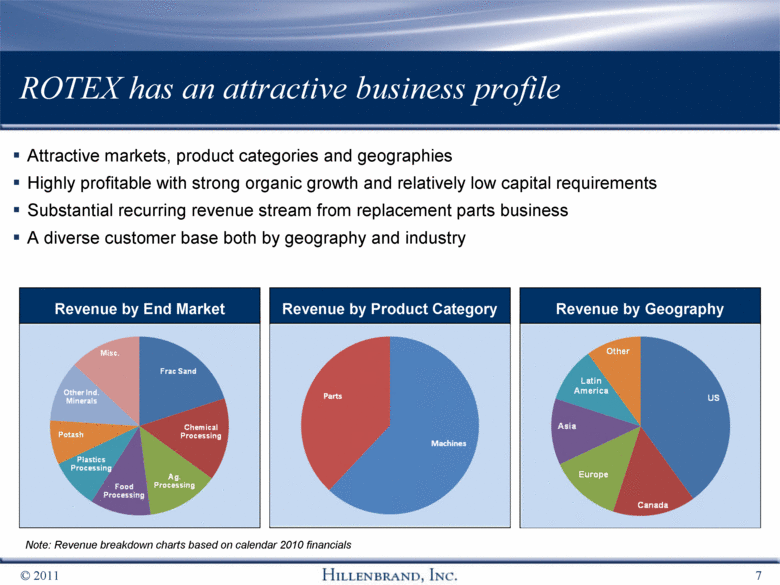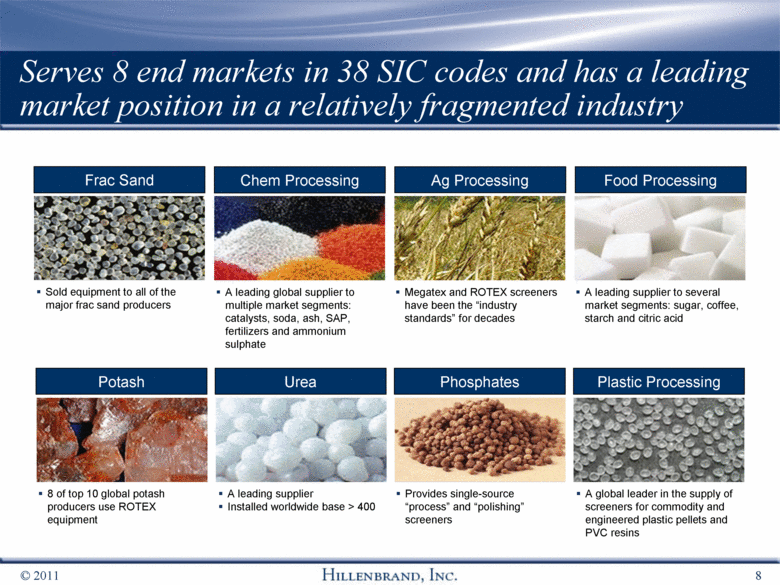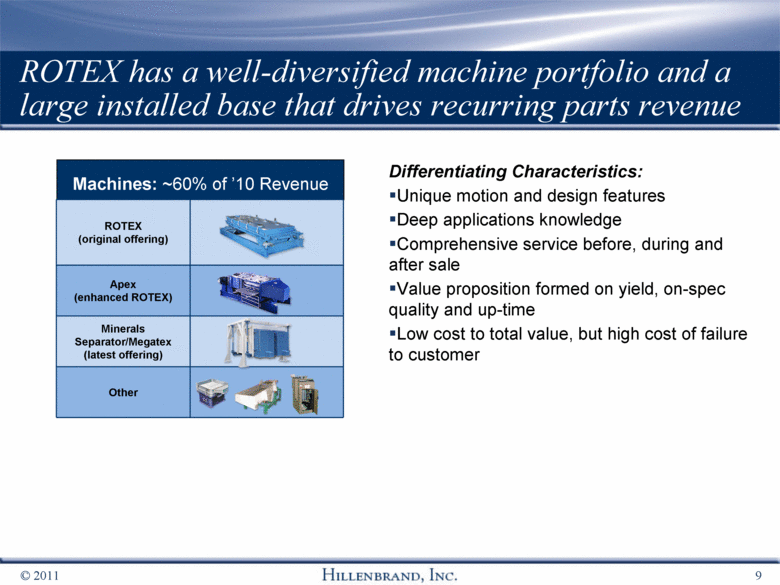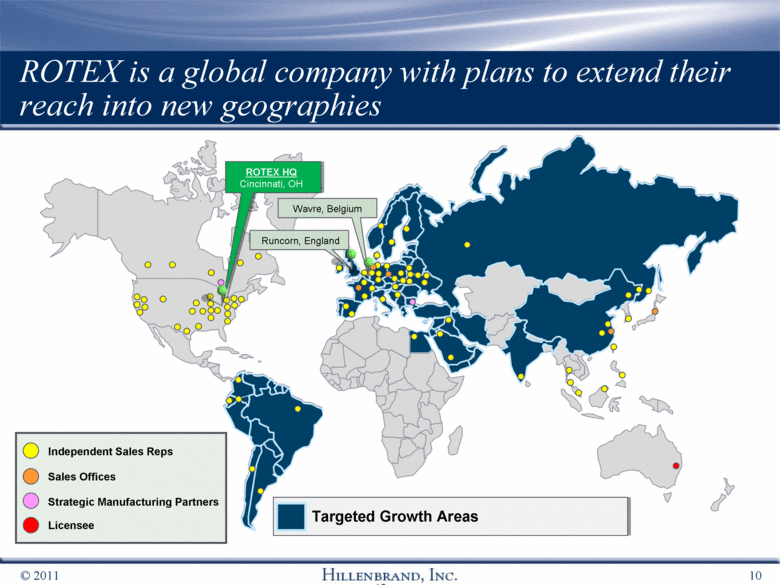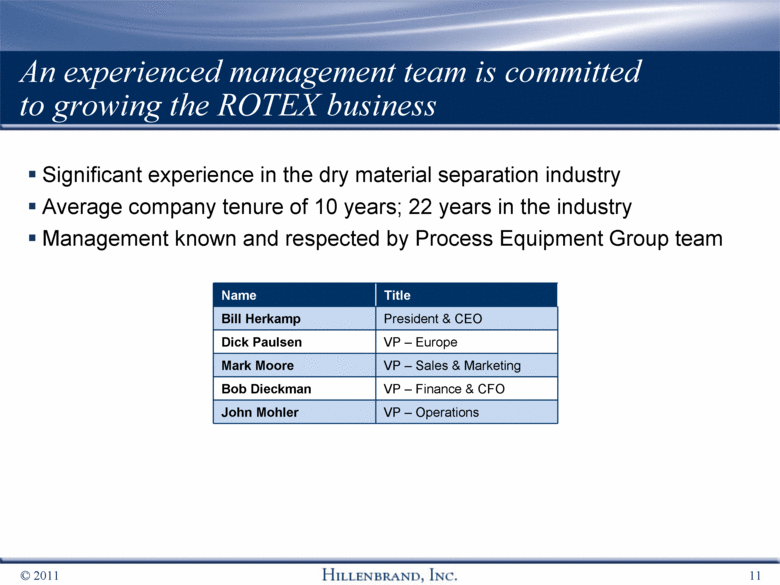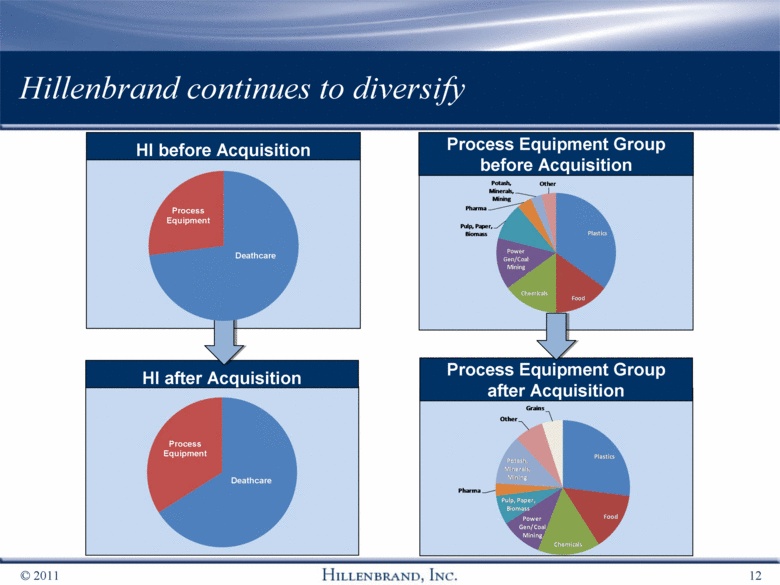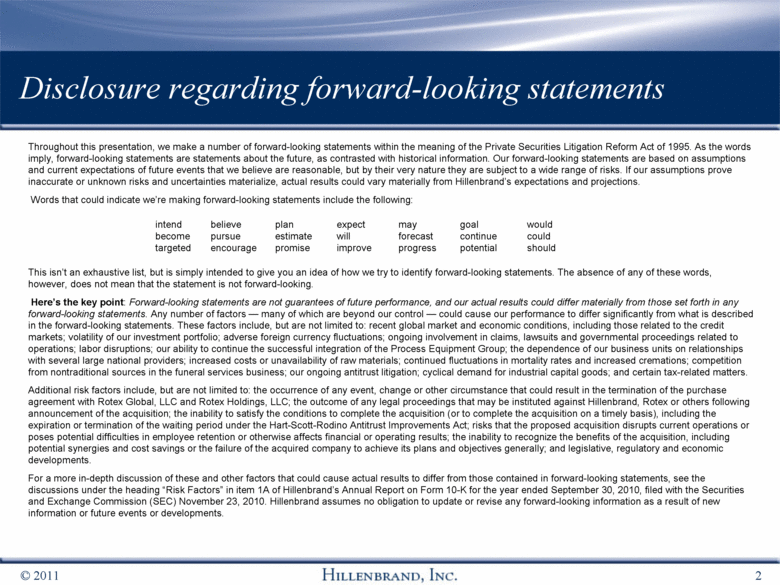
| Disclosure regarding forward-looking statements Throughout this presentation, we make a number of forward-looking statements within the meaning of the Private Securities Litigation Reform Act of 1995. As the words imply, forward-looking statements are statements about the future, as contrasted with historical information. Our forward-looking statements are based on assumptions and current expectations of future events that we believe are reasonable, but by their very nature they are subject to a wide range of risks. If our assumptions prove inaccurate or unknown risks and uncertainties materialize, actual results could vary materially from Hillenbrand’s expectations and projections. Words that could indicate we’re making forward-looking statements include the following: This isn’t an exhaustive list, but is simply intended to give you an idea of how we try to identify forward-looking statements. The absence of any of these words, however, does not mean that the statement is not forward-looking. Here’s the key point: Forward-looking statements are not guarantees of future performance, and our actual results could differ materially from those set forth in any forward-looking statements. Any number of factors — many of which are beyond our control — could cause our performance to differ significantly from what is described in the forward-looking statements. These factors include, but are not limited to: recent global market and economic conditions, including those related to the credit markets; volatility of our investment portfolio; adverse foreign currency fluctuations; ongoing involvement in claims, lawsuits and governmental proceedings related to operations; labor disruptions; our ability to continue the successful integration of the Process Equipment Group; the dependence of our business units on relationships with several large national providers; increased costs or unavailability of raw materials; continued fluctuations in mortality rates and increased cremations; competition from nontraditional sources in the funeral services business; our ongoing antitrust litigation; cyclical demand for industrial capital goods; and certain tax-related matters. Additional risk factors include, but are not limited to: the occurrence of any event, change or other circumstance that could result in the termination of the purchase agreement with Rotex Global, LLC and Rotex Holdings, LLC; the outcome of any legal proceedings that may be instituted against Hillenbrand, Rotex or others following announcement of the acquisition; the inability to satisfy the conditions to complete the acquisition (or to complete the acquisition on a timely basis), including the expiration or termination of the waiting period under the Hart-Scott-Rodino Antitrust Improvements Act; risks that the proposed acquisition disrupts current operations or poses potential difficulties in employee retention or otherwise affects financial or operating results; the inability to recognize the benefits of the acquisition, including potential synergies and cost savings or the failure of the acquired company to achieve its plans and objectives generally; and legislative, regulatory and economic developments. For a more in-depth discussion of these and other factors that could cause actual results to differ from those contained in forward-looking statements, see the discussions under the heading “Risk Factors” in item 1A of Hillenbrand’s Annual Report on Form 10-K for the year ended September 30, 2010, filed with the Securities and Exchange Commission (SEC) November 23, 2010. Hillenbrand assumes no obligation to update or revise any forward-looking information as a result of new information or future events or developments. intend believe plan expect may goal would become pursue estimate will forecast continue could targeted encourage promise improve progress potential should |
